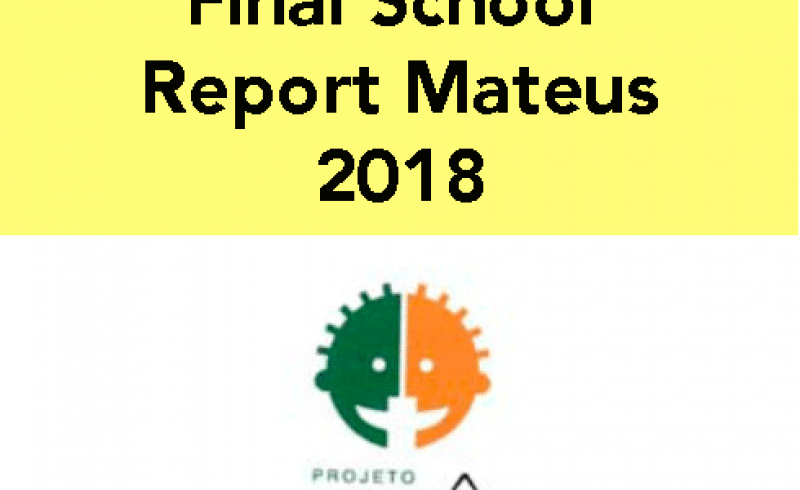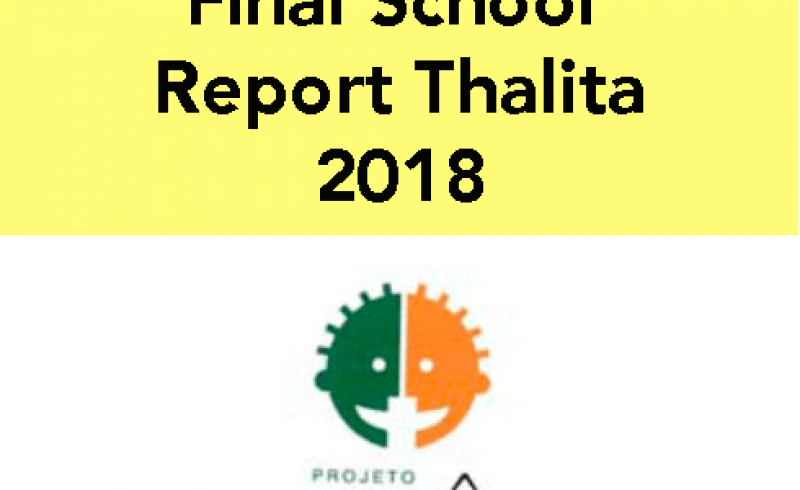Annual Report 2018
(Excerpt: For the complete report please write to Epona-Stiftung für Pferd und Umwelt c/o Mermagen, Kesselstr. 15, 53797 Lohmar)
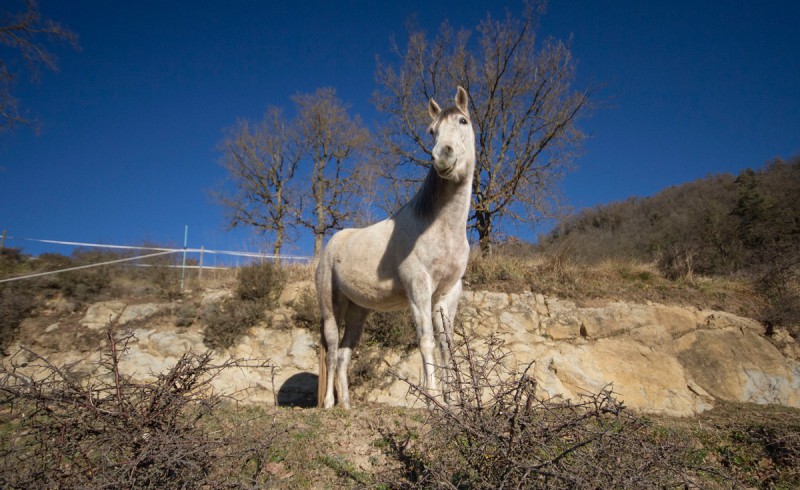
A good year for our horses
The year began with the visit of our horse dentist Matilde Duch. The Berber mare Indu had again an inflamed molar, which had to be pulled. When we looked Ella in the mouth, there was a nasty surprise, two of her upper incisors were broken, as if she had a boxing match. Removing them was a major surgery that Ella bravely endured. After that, we were all relieved, especially Ella. Matilde is a real master and we are glad that she treats our horses so that they can enjoy the green pastures and fragrant hay.
Like her mother Indu, our problem child Aloha also had a good year. She barely limped and our blacksmith Xesco was very pleased with her hooves, which we treat with EM (Effective Microorganisms) every day. The now 7-year-old Aloha always has nonsense in her head, playing hide-and-seek, opening doors to steal the food from Lukas, and as soon one turns around she sticks her head through the fence, so that one has to fear that she will roll down the slope with the whole fence.
Jumpy made a big progress this year. Thanks to a new drug, his hormone balance was improved, thus reducing Cushing’s syndrome. By the end of the year he had increased and seemed more balanced.
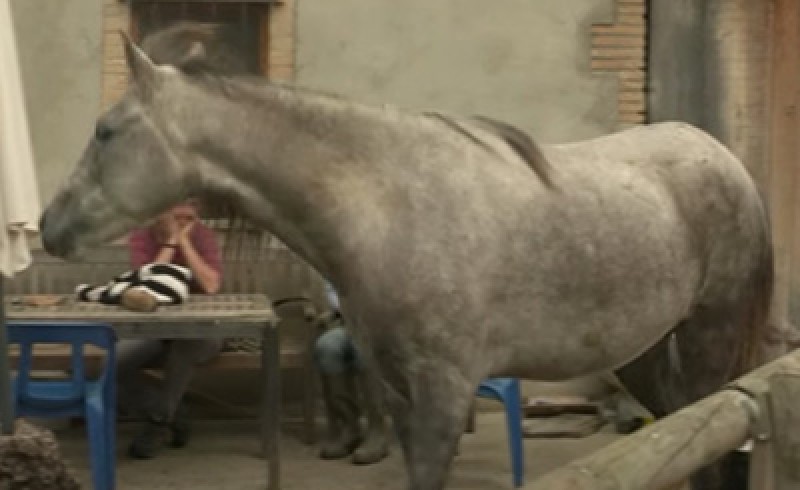
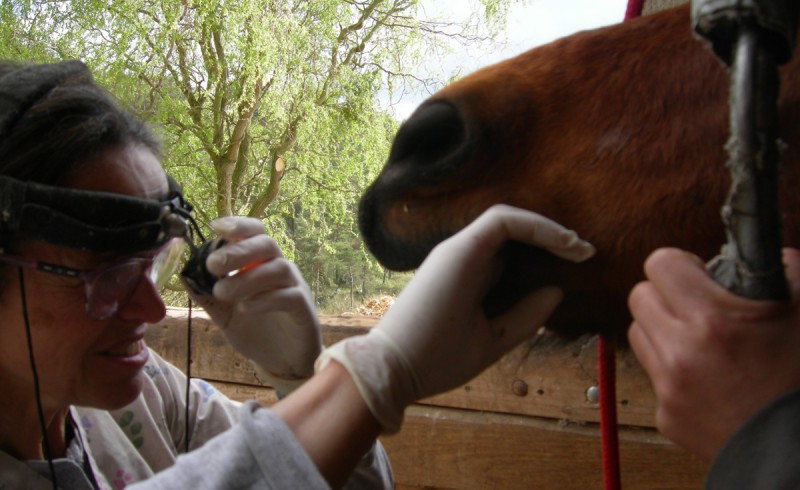
A hard life
Ella, on the other hand, worried us. Her legs hurt her often. Envelopes with healing earth and painkillers brought relief. Our horse therapist Silvia Marti Korff came often and treated Ella. That was good for her. But by the end of the year she had lost weight and often looked at us with tired eyes. We do not know exactly how old Ella is, but she is safe in her mid-20s, and she did not have an easy life. She has given birth to many foals, was used as a school horse for years, sandwiched between binders, and the bad saddles and inexperienced riders took her a lot. Lukas, who became her best friend after Brill’s death, stands by her side. And when Kosmos comes to visit her every once in a while, they play the couple in love, the ex-trotter stallion and the proud Menorquina mare.
Visiting Paris
Four experts discussed at the invitation of the Epona Foundation at the exhibition „Salon du bien-être avec le cheval“ in Paris on June the 2nd 2018 on the topic „The well-being of the horses“ (Le bien-être des chevaux):
The veterinarian dr. Anna Evans is best known for her communication skills with animals far beyond the borders of France, the hoof trimmer Guillaume Parisot (www.podologie-equine-libre.net/tag/pel/) and the therapist Gautier-Jean Burgat, who works with disused racing horses(www.audeladespistes.fr) , as well as the representative of the organization “Au-delà des Pistes”, Julie Degand , sat at the round table in Paris.
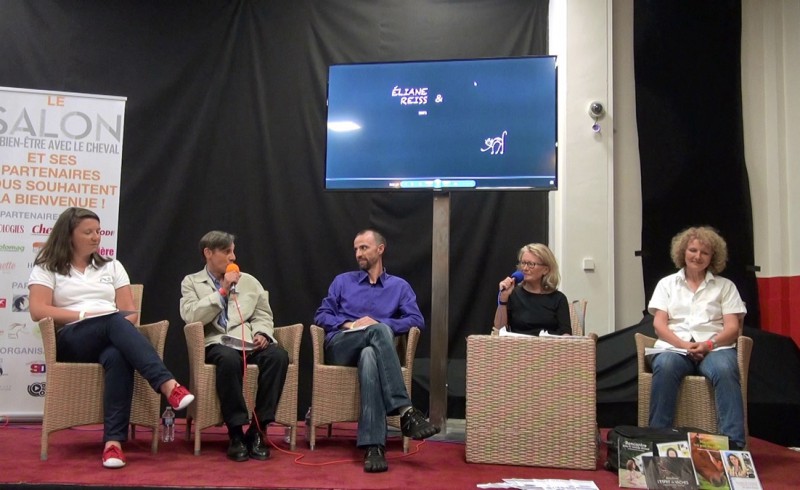
Needs of the horses
The experts from the various fields discussed the needs of horses, which are all too often ignored by humans, the respect we owe to horses, their feelings and sentiment, their different personalities and the opportunity to communicate with them, to understand them and thus build a mutual relationship that is characterized by respect and benevolence.Anna Evans described the multiple possibilities and implications of communicating with our horses: they enable us to grasp the essence of horses, to understand with all due respect their innermost, their emotions, the negative as well as the positive. The communication paved the way for co-evolution, which was not based on utilization and exploitation but on the benevolent realization of the difference, which in turn could bring insights about ourselves and thus could offer us unimagined possibilities with our horses.
The hoof carer Guillaume Parisot talked about the so-called anti-speciesism, which gives its peculiarities to the most diverse species and races without a classification or hierarchy, that no living being has the right to utilize and exploit others. The fundamental needs of horses are often disregarded for ignorance or disinterest, and that is what causes most problems, Parisot said. It is necessary to go back to the base to understand and change something to achieve the domestication of the horse: “The best gift we can probably give to a horse is not to forget that it is exactly this: one Horse. “Guillaume gave a detailed report on the newly founded Institut ‘Institut Hippais Hippologie’ (www.institut-francais-hippologie.fr), where professionals from the horse industry have joined forces to explain and teach, through education and courses, what horses naturally need.
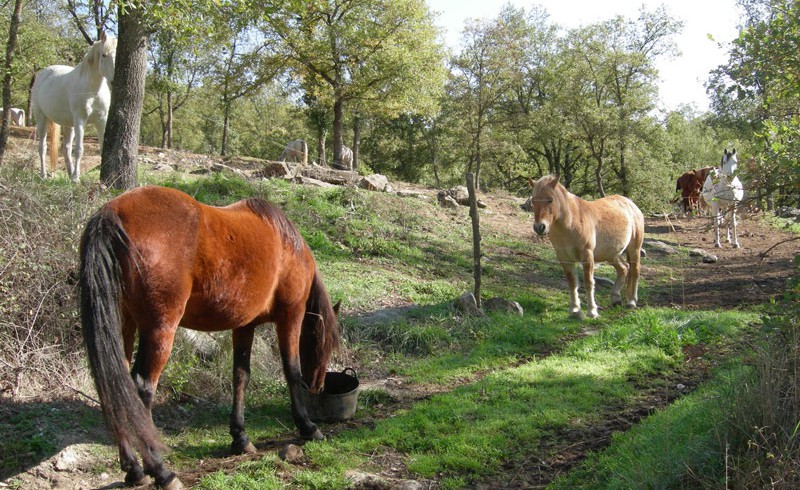
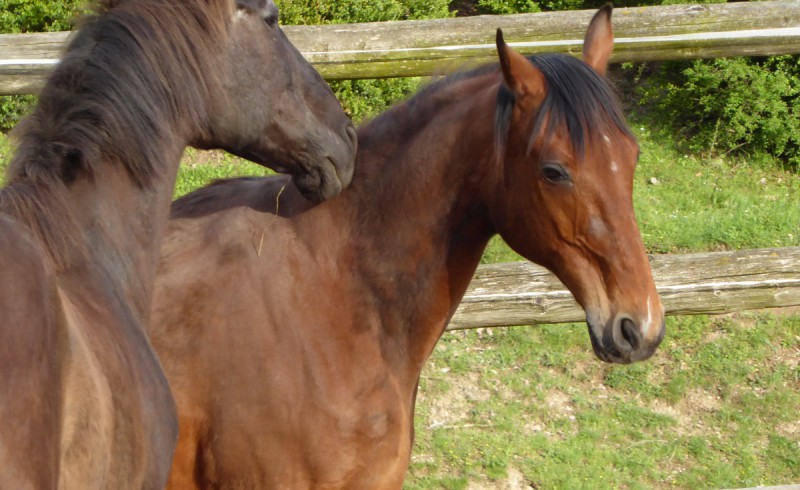
Gautier-Jean Burgat spoke from the field. He reported how difficult it is to integrate former racehorses used to live alone in boxes or on narrow, long paddocks, into a herd on several acres of land. He talked about the most different personalities and that every horse needs an individual treatment. Often, injuries that have become chronic in most cases will make it difficult to retire. In his remarks it became clear how much sensitivity, mindfulness, time, devotion, understanding and affection is needed to make these high-performance athletes “normal” horses again. Julie Degand talked about the possibilities to give these “normal” horses to new owners, as a company for a horse, as a leisure riding horse or simply for the pleasure of giving a second chance and a second life to an ex-racehorse.
The next year
In 2019, the Epona Foundation will be ten years old. It was recognized on 17 July 2009 as an independent legal foundation by the district government of Cologne. We are curious to see what the jubilee year will bring to us. Especially if our protégés are healthy and happy, this is a gift we are happy with.
Annie Hansemanns reports from Brazil and Eritrea:
Godchildren and Uerê
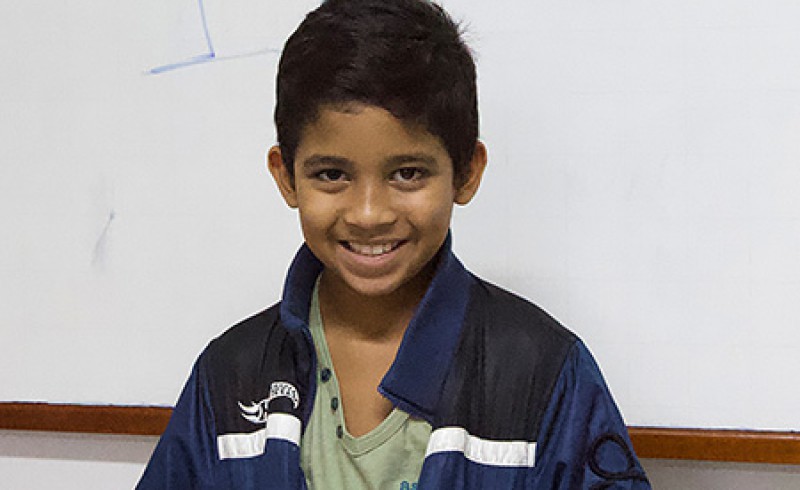
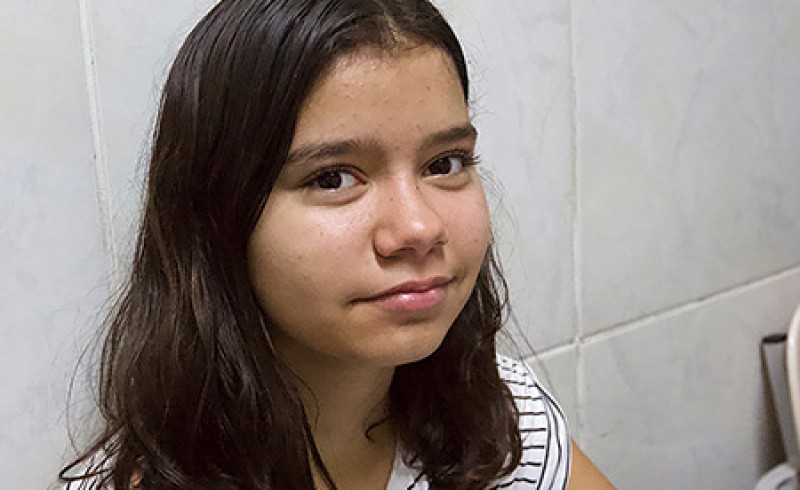
The situation in Brazil is getting increasingly difficult. After the election, human rights organizations are under severe pressure. They are being routed as “leftists” by the new right-wing government. International NGOs could even be expelled from the country in the worst case scenario. This had been heard in the election campaign, reported Annie Hansemann, International Program Adviser Uerê. People like Yvonne de Mello, founder and head of Uerê, who works for the rights of minorities and the poor, will have a harder time and fear that they will be attacked via social networks. This could have a negative impact on the willingness to donate in Brazil, fears Annie Hansemanns.
We are proud of our two sponsored children, Mateus finished the school year with very good grades and also Thalita moved up.
Please click on the buttons on the left to get further information.
Eritrea
Annie Hasemann returned to Eritrea in November 2018 for ArcheMed. She sent some personal impressions to the Epona Foundation, which is involved in the donkey project for single mothers:
After signing the Ethiopia-Eritrean peace treaty in mid-2018, reopening the borders between the two countries and resuming air traffic between Addis Ababa and Asmara, the people were filled with joy and hope that the National Service (well beyond the normal military service can go out) now be repealed because there is no more danger of war. Nevertheless, some Eritreans did not really trust the peace and they crossed the border into Ethiopia. There are around 50,000 Eritreans, including many women and children who arrived in Ethiopian refugee camps and hope that they can somehow travel to Europe. Since almost nobody has a passport, an official departure is rather difficult.
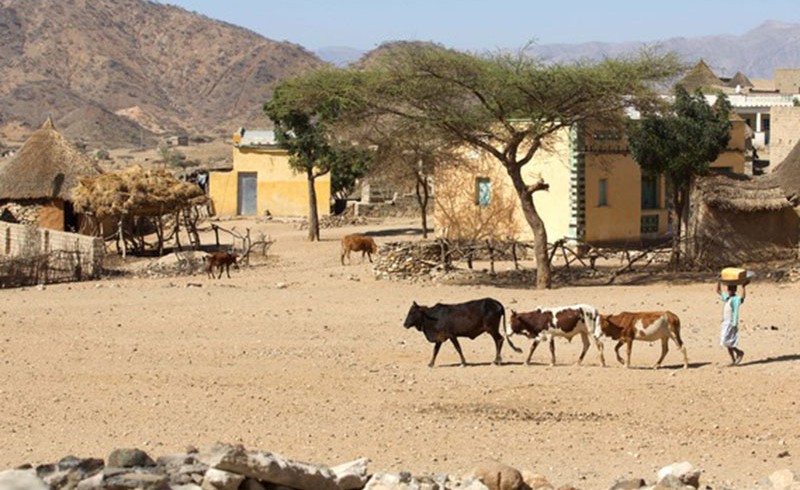
In the capital city of Asmara, I could see a significant change: where once you could easily cross the main road, now caution was announced. Many cars and more bikes were on the way. Refueling in Ethiopia, where the gasoline is much cheaper than in Eritrea. Everywhere small shops had opened, internet cafes, and even a perfumery. While the internet in the hotels is rather agonizingly slow, it was really fast in the internet cafés for local conditions.
Food prices had dropped significantly as Ethiopian traders have no customs and no
Import VAT must be payed at the border crossing. Sooner or later, the state of Eritrea will have to intervene here, otherwise Eritrean traders will become incapable of competition.
In November, the UN sanctions against Eritrea were lifted. I saw radiant faces everywhere, the government gave auspicious speeches and live music was danced until late in the evening. It was a real spirit of optimism. Many believe that investors are now flooding the country and creating jobs. I’m not that optimistic. Above all, it requires an internationally acceptable jurisdiction, a functioning banking system, a power supply without failure, running water and means of communication such as mobile phones and a fast Internet.
That is still a long way. The National Service will certainly not be canceled so quickly, because it is not so easy to create new jobs in the private sector. However, countries such as Saudi Arabia, Dubai and China are already quite present in the country: expansion of seaports, financing, goldmine, supply of petroleum products and machinery, expansion of power plant, etc. However, this is not enough to give the population the necessary work.
All ArcheMed projects (www.archemed.org) continue as usual. The grand maternal and child center (all around childbirth) in Keren is expected to open in 2020. We are worried about the shortage of doctors and nurses – here the Ministry of Health must be strong enough for such a large hospital to run well.
The European pediatric cardiologists have again been able to successfully operate many children on the heart. They can go to school often the long ways and help in the family, herding the cattle and get water.
The international neonatologists, obstetricians and nursing intensive care nurses train local staff in various hospitals to care for premature and sick newborns. The neo-station in the capital is bursting at the seams and the building itself needs an urgent renovation (roof and walls). It would be better to build a completely new, larger station, but the money is missing.
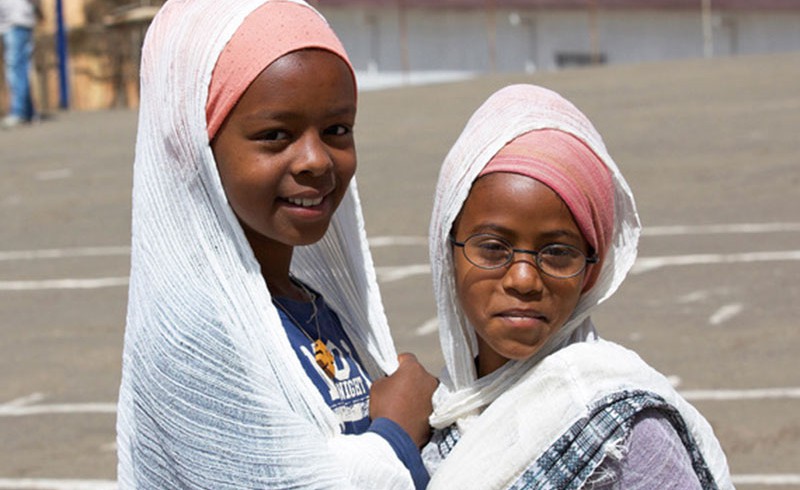
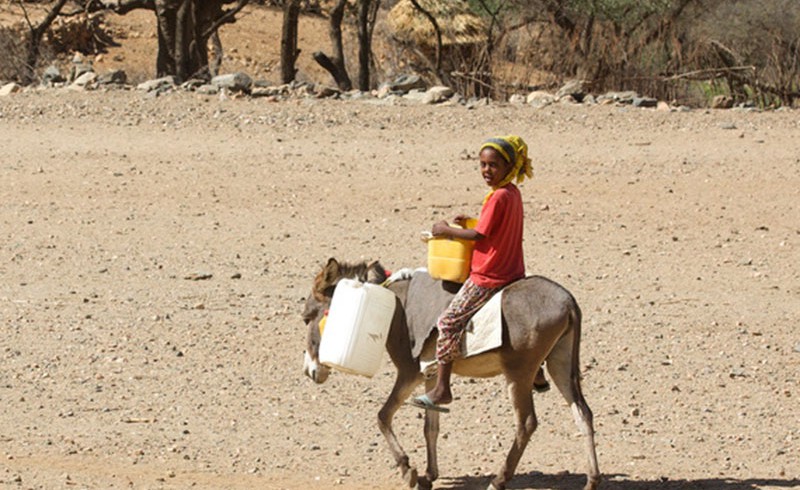
The old children’s hospital in the capital, together with an Italian NGO and an Eritrean construction company, will be completely overhauled and partly redesigned by ArcheMed. This is also where the very first children’s oncology in the country is to be created.
The expansion of the school in the traditional village of Doroq is progressing well and the children are getting bright classes and a toilet block. In the village live mainly people from the tribe of Bilen, where female circumcision is still widespread. Together with locals, Arche Med explains the physical and mental consequences of genital mutilation. The village elders, the church, students and of course the women and men are all involved. Documentary films are shown and the students produced a play simulating genital mutilation. People look at it with petrified faces and some cry. Afterwards, the topic is discussed, and the assembled village makes the decision not to practice genital mutilation in the future. Such an awareness campaign takes at least two years, so that the topic can settle in the mind. A great job – especially by the local people who, of course, with the different tribal
Languages and cultural differences are familiar.
Of course, the donkey project will continue. It is so important to relieve the household, and especially the young girls, of carrying heavy water cans home from the water points.
Interesting and informative documentary films can be seen at www.archemed.org/medien/mediathek, there is also a film about the donkey project.
